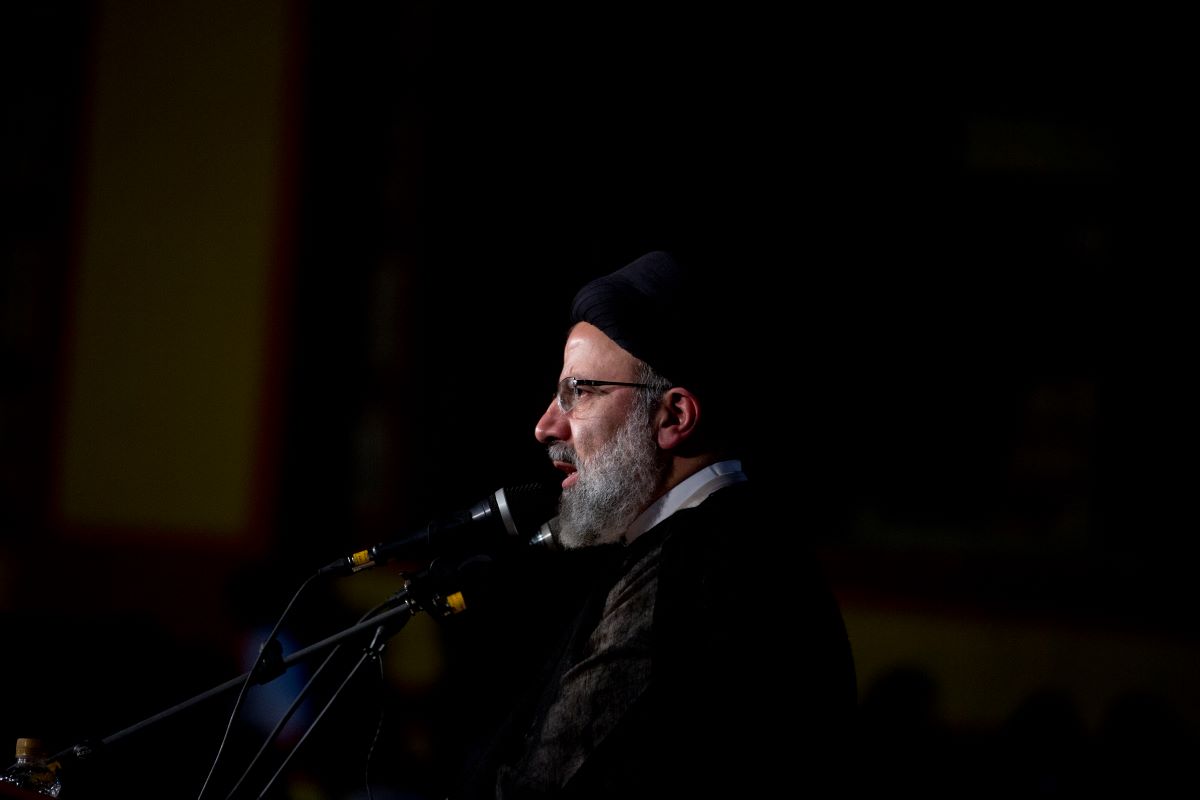Trump writes to Iran’s Khamenei inviting him to ‘negotiate a deal’
US President Donald Trump has said he wrote a letter to Iran’s supreme leader Ali Khamenei inviting him to negotiate a deal.
Syrian President Bashar Assad, Dubai’s ruler Sheikh Mohammed bin Rashid Al Maktoum congratulated Raisi’s win

Ebrahim Raisi speaks to his supporters during a campaign rally in Tehran, Iran. IANS
Iran’s hard-line judiciary chief won a landslide victory in the country’s presidential election.
With his strongest competitors disqualified, the election of Ebrahim Raisi, already sanctioned by the US, became more of a coronation.
Advertisement
Voters were disgruntled and the apathy reigned as 28.9 million voters of 59 million eligible voters voted. Of those, some 3.7 million either accidentally or intentionally voided their ballots.
Advertisement
Iranian state television immediately blamed challenges of the pandemic and US sanctions for the low participation. But the low turnout and voided ballots suggested a wider dissonance with the tightly controlled election, as activists criticized Raisi’s ascent.
“That Ebrahim Raisi has risen to the presidency instead of being investigated for the crimes against humanity of murder, enforced disappearance and torture is a grim reminder that impunity reigns supreme in Iran,” Amnesty International’s Secretary-General Agnes Callamard said.
In official results, Raisi won 17.9 million votes overall, nearly 62 per cent of the total 28.9 million cast. Had the voided ballots gone to a candidate, that person would have come in second. Following Raisi was former hard-line Revolutionary Guard commander Mohsen Rezaei with 3.4 million votes.
Former Central Bank chief Abdolnasser Hemmati, a moderate viewed as a stand-in for outgoing President Hassan Rouhani in the election, came in third with 2.4 million votes. Amirhossein Ghazizadeh Hashemi was last with just under 1 million.
Interior Minister Abdolreza Rahmani Fazli, who gave the results, did not explain the high number of voided ballots. Elections in 2017 and 2012 saw some 1.2 million voided ballots apiece. Iran does not allow international election observers.
While Iran does not have mandatory voting, those casting ballots do receive stamps showing they voted on their birth certificates. Some worry that could affect their ability to apply for jobs and scholarships, or to hold onto their positions in the government or security forces.
Abroad, Syrian President Bashar Assad immediately congratulated Raisi’s win. Iran has been instrumental in seeing Assad hold onto the presidency amid his country’s decade-long grinding war.
Separate congratulations came from Dubai’s ruler Sheikh Mohammed bin Rashid Al Maktoum, who also serves as the vice president and prime minister of the hereditarily ruled United Arab Emirates. The UAE has been trying to de-escalate tensions with Iran since a series of attacks on shipping off its coast in 2019 that the U.S. Navy blamed on Iran.
Also congratulating Raisi was Oman, which has served as an interlocutor between Tehran and the West.
Iran’s archrival Israel, however, slammed the new leader. Foreign Minister Yair Lapid called Raisi “the butcher of Tehran” and described him as responsible for the deaths of “thousands of Iranians.”
Rouhani, who in 2017 dismissed Raisi as an opponent in his reelection as someone only knowing about “executions and imprisoning” people, met the cleric Saturday and congratulated him.
“I hope I can respond well to the people’s confidence, vote and kindness during my term,” Raisi said.
Raisi also has become the first serving Iranian president sanctioned by the US government even before entering office over his involvement in the 1988 mass executions, as well as his time as the head of Iran’s internationally criticized judiciary – one of the world’s top executioners.
US hopes for a longer and stronger nuclear deal from the Vienna talks may be in question.
“Raisi’s ambivalence about foreign interaction will only worsen the chances that Washington could persuade Tehran to accept further limits on its nuclear program, regional influence, or missile program, at least in Joe Biden’s first term in office,” wrote Henry Rome, an analyst at the Eurasia Group who studies Iran.
Advertisement